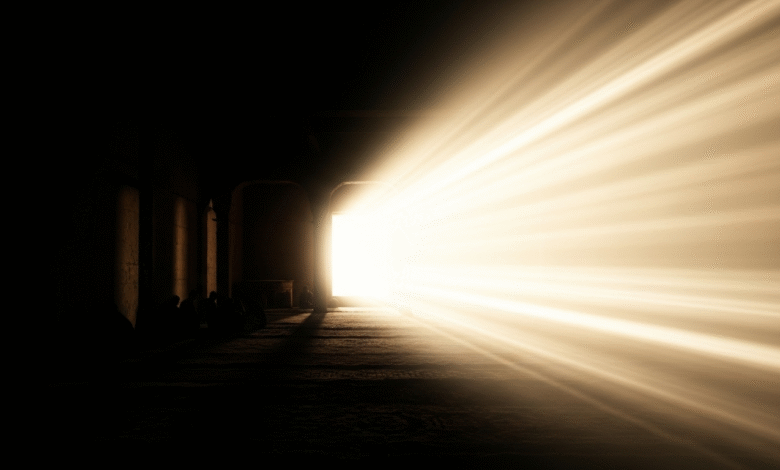Covert and overt advocacy: Three years of secrecy and the beginning of confrontation

The Islamic call was not born in an instant, but went through gradual stages that began with concealment and secrecy, then moved on to openness and confrontation. These stages were necessary to build a solid base for the new religion in Mecca and to prepare the first Muslims to bear the burdens of the message. How did the call begin in secret, and what prompted it to become public despite the dangers?
Secret invitation: Building the First Nucleus (three years)
After the first revelation in the Cave of Hira, the Prophet Muhammad began his call to Islam in complete secrecy. This phase, which lasted about three years, was crucial for building the first nucleus of believers in a hostile environment.
- Reasons for secrecy: The primary purpose of secrecy was to avoid early confrontation with the Quraysh, who were clinging to idol worship and patriarchal traditions. This secrecy allowed the call to grow quietly and gain followers who believed in the message and took responsibility for it.
- Early Muslims: The Prophet (peace and blessings of Allah be upon him) began inviting those close to him. His wife Khadija bint Khuwaylid was the first to believe in him, followed by his cousin Ali ibn Abi Talib, his loyal servant Zayd ibn Haritha, and his close friend Abu Bakr al-Siddiq. They were soon followed by a number of early companions such as Uthman ibn Affan, Zubayr ibn al-Awwam, Talha ibn Ubaydullah, Saad ibn Abi Waqqas, Abdul Rahman ibn Awf and many others.
- The center of the call: The House of Al-Arqam on Mount Safa was a secret center for the Prophet’s meetings with the first Muslims. There, he taught them the Qur’an and the principles of Islam, and instilled in them faith and patience.
Publicizing the call: Quraysh’s challenge and confrontation
After three years of secret da’wah, God authorized his prophet to make his da’wah public. This stage was a major turning point, as Muslims moved from concealment to open confrontation.
- The divine command to speak out: The Prophet (peace and blessings be upon him) was explicitly commanded by God Almighty to proclaim the call, as in the following statement:
فَاصْدَعْ بِمَا تُؤْمَرُ وَأَعْرِضْ عَنِ الْمُشْرِكِينَ(Surat al-Hajar: 94). Afterward, the Prophet (peace and blessings be upon him) ascended Mount Safa and called out to the Quraysh to deliver the message publicly. - Quraysh’s reaction: The Quraysh did not accept this call that threatened their religious, economic and social status. They accused the Prophet of magic, madness and lying, and began a campaign of abuse and harassment against the Prophet and the Muslims.
- Persecution of early Muslims: Muslims were subjected to various types of torture and abuse. Examples include:
- Bilal ibn Rabah: He was tortured by placing him in the hot sun on the sand and placing heavy rocks on his chest, but he would chant “Ahad Ahad”.
- Al Yasser (Ammar, Samia, Yasser): They were subjected to the most severe torture. Sumaya was martyred, making her the first martyr in Islam, and her husband Yasser was martyred.
- Many were beaten, blockaded, and starved.
The Prophet’s fortitude and patience
Despite all these challenges, the Prophet remained steadfast in the truth, patient in the face of harm. His uncle Abu Talib defended him, but he did not give in. The Quraysh offered the Prophet money and power to leave his call, but he flatly refused, saying his famous saying to his uncle: “By Allah, O uncle, if they put the sun on my right and the moon on my left: “By God, O uncle, if they put the sun in my right hand and the moon in my left, I would not leave this matter until God shows it or I perish without it.”
Conclusion: Immutable rules for a timeless invitation
The stage of secret and open dawah was a true test of the faith of the Muslims and the patience of the Prophet (peace be upon him). This stage showed the solidity of the call and the strength of the faith that was not shaken by challenges. It teaches us that building a great da’wah requires patience, wisdom in progression, and steadfastness in the face of adversity. These solid foundations laid by the call in its beginnings paved the way for the spread of Islam later on, and proved that right will inevitably triumph, no matter how long the struggle lasts.
What do you think is the importance of gradualism in dawah?




